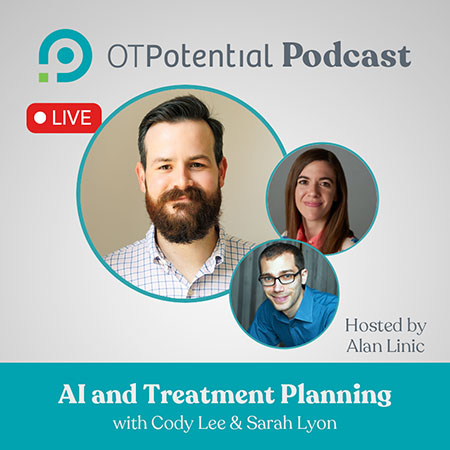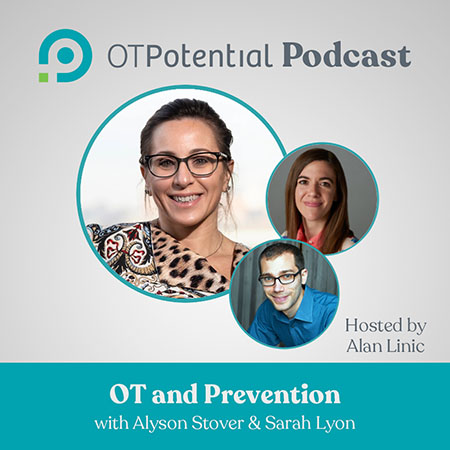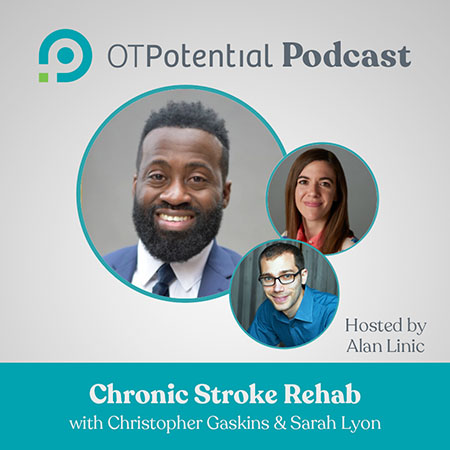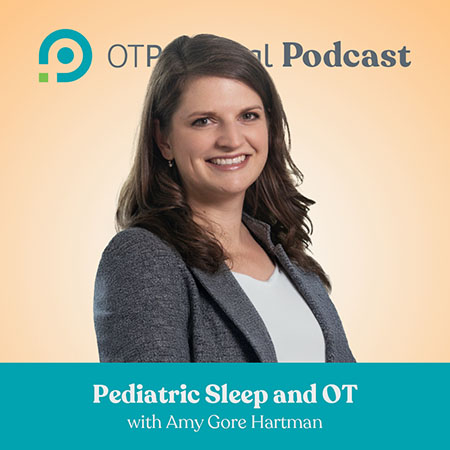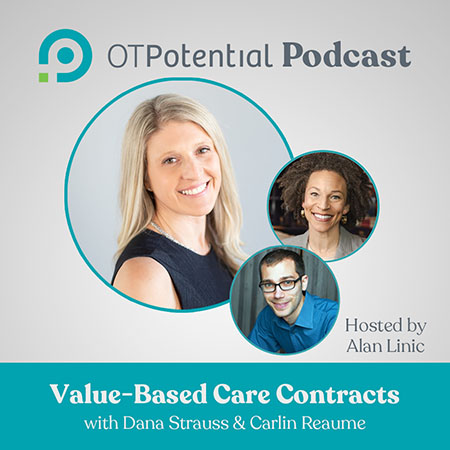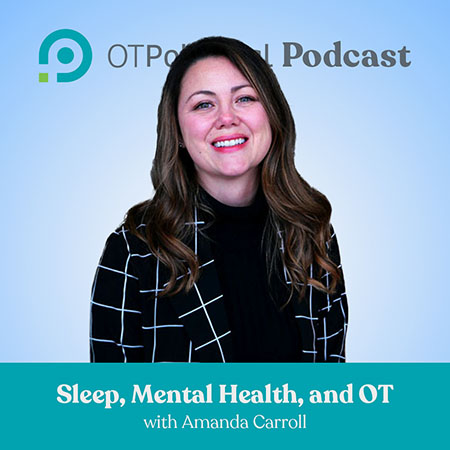Earn 1 hour of continuing education by joining OT Potential after taking this course.
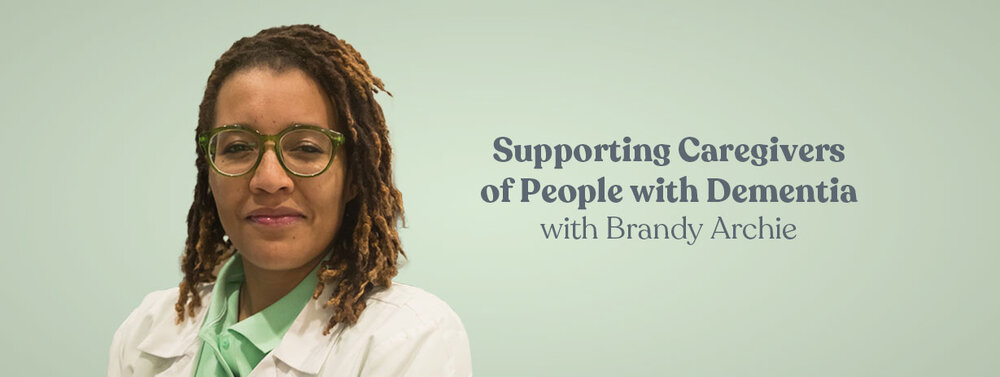
Listen: Apple | Spotify | Google
This podcast episode discusses the important topic of how to support those who care for people with dementia. Dementia tends to inform many conversations around caregiving, largely because it is such a pressing public health concern.
Yet, this is a conversation that goes beyond a single diagnosis. After all, many of our occupational therapy clients receive some type of caregiving, whether formal or informal. And, the reality is that caregivers’ health (or lack thereof) is likely to impact our clients’ health.
I believe all occupational therapists—regardless of practice setting or patient population—will benefit from understanding the takeaways from this research.
After we look at some specific research on this topic, we’ll be bringing in our expert guest, Brandy Archie, OTD, the founder of AccessAble Living, to talk about the practical implications of supporting caregivers in your OT practice.
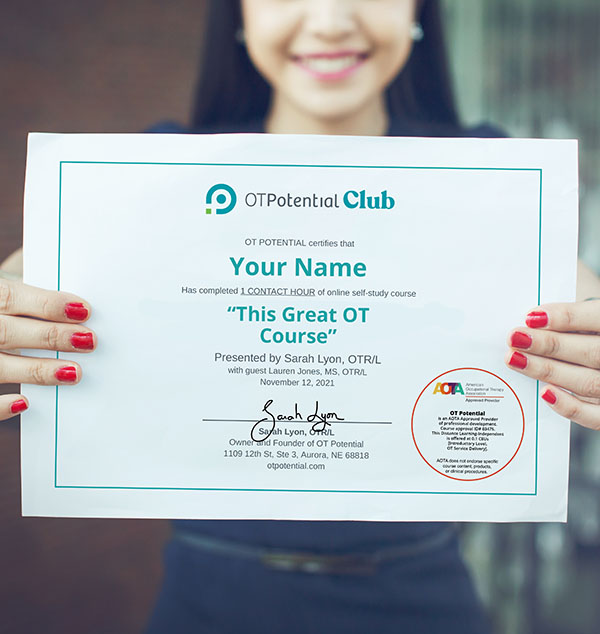
Earn 1 hour of continuing education
1. Listen to the podcast for free.
2. Sign up for the OT Potential Club.
3. Pass the quiz and download your certificate!
Primary Research Explored
When you log in, be sure to check out the OT Potential Club’s written breakdown of the following research article, then share your questions and thoughts with fellow practitioners.
Secondary Research
Learning Objectives
- Based on the research, you will be able to identify commonalities of OT interventions that had the best outcomes.
- Based on the research, you will be able to identify which areas of caregiver health may be most beneficial to assess for measuring outcomes.
Agenda
Intro (5 minutes)
Breakdown of primary research (10 minutes)
- Why is there such a need to support informal caregivers of people with dementia?
- What does the research tell us about the potential toll of being a caregiver—and how does this impact the health of the person with dementia?
- What was the intent of this systematic review?
- How did the classify supportive interventions?
- What OT-specific results did they find?
- What assessments were used in the OT studies?
- What were some other results of interest to OTs?
- What did the authors conclude and discuss?
- What are some practical takeaways for OTs?
Discussion on practical implications for OTs (with guest Brandy Archie) (45 minutes)
- Why do you think it is important for OTs to consider the support of caregivers?
- What are the current gaps you see in adequately supporting caregivers?
- Based on your reading/experience, what are some components of an OT interventions that would focus more explicitly on supporting caregivers?
- How do you see the support of caregivers playing out in your own practice?
- How do you use home modifications to support caregivers?
- Have you ever done any assessments related to caregiver health/burden? Did any assessments in the research look interesting to you?
- What are some ways OTs can get reimbursed for providing caregiver support? How can we document caregiver support to ensure we get paid for our time?
- In your ideal world, how would you like to see OTs supporting caregivers in the traditional setting, as well as by taking a more entrepreneurial approach?
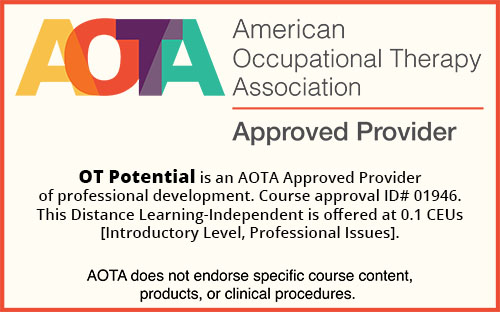
Instructional Methods/Registration/Special Needs Requests/Cancellation Policy
This course is an independent/self-study course delivered via podcast on iTunes, Spotify, Google Play & more.
If you need accommodations to take this course, please contact us and we will address your needs on an individual basis.
If we cancel a promoted course, event, live stream, or any other paid CEU offering prior to release, and you subscribe explicitly for said offering, you are eligible for a full refund if you did not complete and earn any other CEU quizzes or certificates during your subscription.
If a live webinar is cancelled that you signed up for, our system will automatically generate an email to you and if possible, we will inform you of the rescheduled date. Our most current webinar schedule will be found at: otpotential.com/live-ot-ceu-webinars.
Course Completion Requirements
In order to receive a certificate for this course, you must first participate in the podcast/webinar in its entirety. Then, you will need to take the quiz that will accompany the course and earn 75% or higher. If you pass, a certificate will be automatically generated and sent to your email. Quizzes for live (distance learning–interactive) webinars must be completed within 3 days of completing the webinar.
Target Audience/Educational Level
Occupational therapy practitioners who work with caregivers and patients with dementia. The educational level is introductory.
Financial and Non-financial Disclosures
It is the policy of OT Potential to disclose any financial and non-financial interest the provider or instructor may have in a product or service mentioned during an activity. This is to ensure that the audience is made aware of any bias of the speaker.
We here at OT Potential have no financial stake in this topic. Our guest, Brandy Archie, has no financial interest in this topic to disclose.
Speakers
Brandy Archie, OTD, OTR/L, CLIPP, CLVT

Dr. Archie received her doctorate in occupational therapy from Creighton University. She is certified in both Living in Place and Low Vision Therapy. Dr. Archie has over 13 years of experience in home health, neuro, and elder-focused practice settings.
She is currently the Founding Director of AccessAble Living, a company whose mission is to adapt environments to fit the needs of older adults to keep them living safely in their homes in Missouri and Kansas. Read full bio.
Sarah Lyon, OTR/L:
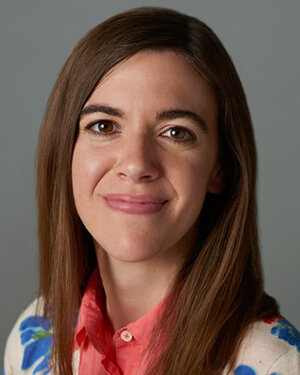
Sarah’s passion is helping fellow OT practitioners translate evidence into daily practice. Sarah earned her BA in religion from St. Olaf College, then earned her master’s degree in occupational therapy from New York University in 2011.
Since then, she’s worked in numerous facilities, including a critical access hospital, an acute trauma hospital, and a state inpatient psychiatric hospital. Sarah is the founder/owner of OT Potential. Read more about OT Potential here.
This course was designed to meet your continuing education requirements
We designed the courses in the Club to meet the requirements for “online” and “independent/self-study” courses. To verify the requirements from your specific state (within the US), check out our post, OT Continuing Education Requirements. If you are outside of the United States and have questions, please contact us.
We are proud to be an AOTA Approved Provider and to meet the requirements for your NBCOT renewal.
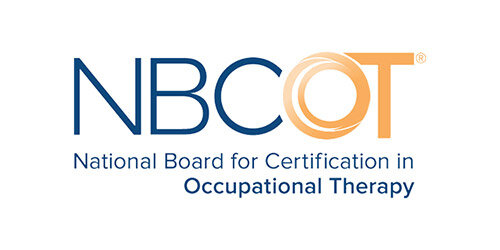
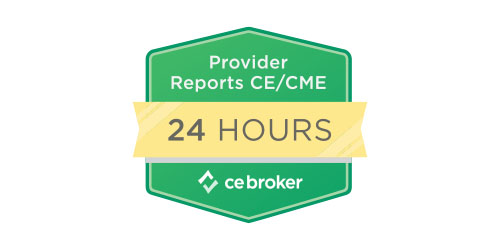
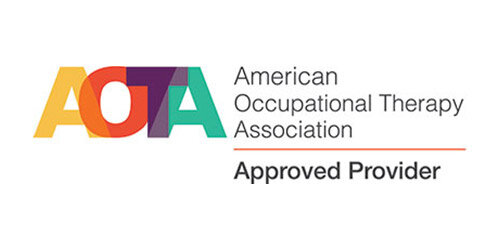
See our other OT courses!
Supporting Informal Caregivers of People with Dementia • OT Potential
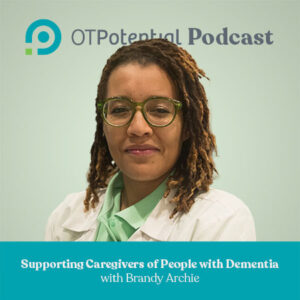
This hour long occupational therapy continuing education course is aimed to help you refine your evidence based OT practice. We’ll be covering “Supporting Informal Caregivers of People with Dementia.” We’ll look at new research related to the topic and discuss it with Brandy Archie, OTD, OTR/L, CLIPP, CLVT.
Course Provider: Organization
Course Provider Name: OT Potential
Course Provider URL: https://otpotential.com/
Course Mode: Online
Start Date: 2021-03-01
Duration: 01:00:00
Course Type: Subscription
4.86

